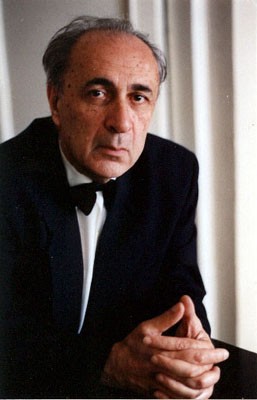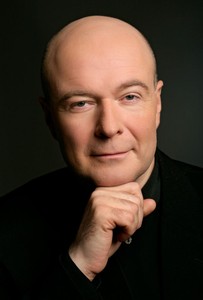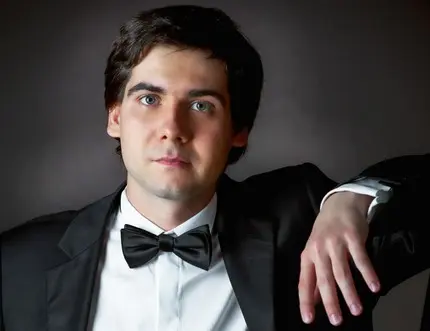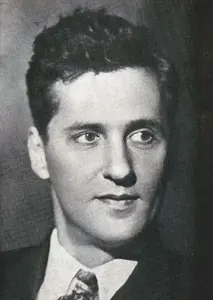
Naum Lvovich Shtarkman |
Naum Shtarkman

Igumnovskaya school has given our pianistic culture many talented artists. The list of students of an outstanding teacher, in fact, closes Naum Shtarkman. After the death of K. N. Igumnov, he no longer began to move to another class and in 1949 he graduated from the Moscow Conservatory, as it is customary to say in such cases, “on his own”. So the teacher did not have to, unfortunately, rejoice at the success of his pet. And they soon arrived…
It can be said that Shtarkman (unlike most of his colleagues) entered the now obligatory competitive path as a well-established musician. Following the fifth prize at the Chopin Competition in Warsaw (1955), in 1957 he won the highest award at the International Competition in Lisbon and, finally, became the third prize-winner at the Tchaikovsky Competition (1958). All these successes only confirmed his rather high artistic reputation.
This is, first of all, the reputation of a lyricist, even a refined lyricist, who owns an expressive piano sound, a mature master who can clearly and accurately identify the architectonics of a work, nobly and logically build a dramatic line. “His nature,” writes G. Tsypin, “is especially close to serene and contemplative moods, languidly elegiac, fanned by a thin and gentle melancholic haze. In the transfer of such emotional and psychological states, he is truly sincere and truthful. And, on the contrary, the pianist becomes somewhat outwardly theatrical and therefore not so convincing where passion, intense expression enter the music.
Indeed, Shtarkman’s wide repertoire (more than thirty piano concertos alone) richly represents, say, the works of Liszt, Chopin, Schumann, Rachmaninov. However, in their music he is attracted not by sharp conflicts, drama or virtuosity, but rather by soft poetry, dreaminess. Approximately the same can be attributed to his interpretations of Tchaikovsky’s music, in which he especially succeeds in landscape sketches of The Four Seasons. “The performing ideas of Shtarkman,” V. Delson emphasized, “are carried out to the end, embossed both in artistic and virtuoso terms. The very manner of the pianist’s playing – collected, concentrated, accurate in sound and phrasing – is a natural consequence of his attraction to the perfection of form, plastic molding of the whole and details. It is not the monumentality, not the splendor of the constructions, and not the showiness of the bravura that seduce Shtarkman, despite the presence of a strong virtuoso skill. Thoughtfulness, emotional sincerity, great inner temperament – this is what distinguishes the artistic appearance of this musician.
If we talk about Shtarkman’s interpretation of the works of Bach, Mozart, Haydn, Beethoven, then it is appropriate to recall the characterization given to the laureate of the Moscow competition by E. G. Gilels: “His playing is distinguished by great artistic completeness and thoughtfulness.” Shtarkman often plays French Impressionists. The pianist performs Claude Debussy’s “Suite Bergamasco” especially successfully and penetratingly.
The artist’s repertoire includes, of course, Soviet music. Along with the famous pieces by S. Prokofiev and D. Kabalevsky, Shtarkman also played the Concerto on Arabic themes by F. Amirov and E. Nazirova, piano concertos by G. Gasanov, E. Golubev (No. 2).
Shtarkman has long earned fame as a first-class chopinist. It is not for nothing that the artist’s monographic evenings dedicated to the work of the Polish genius invariably attract special attention of the audience with a deep penetration into the composer’s intention.
N. Sokolov’s review of one of these evenings says: “This pianist is one of the best representatives of that artistic tradition of the performing arts, which could rightly be called romantic academicism. Shtarkman combines a jealous concern for the purity of technical skill with an unquenchable will for a temperamental and soulful rendering of a musical image. This time, the talented master demonstrated a slightly colorful but very beautiful touch, mastery of piano gradations, remarkable lightness and speed in legato passages, in carpal staccato, in thirds, in double notes of alternating intervals and other varieties of fine technique. Both in the Ballad and in other pieces by Chopin performed that evening, Shtarkman reduced the range of dynamics to the maximum, thanks to which Chopin’s high lyric poetry appeared in its original purity, freed from everything superfluous and vain. The artistic temperament of the artist, the great acuteness of perception were in this case entirely subordinated to one super-task – to demonstrate the depth, capacity of the composer’s lyrical statements with the maximum stinginess of expressive means. The performer brilliantly coped with this most difficult task.
Shtarkman performed on the concert stage for more than four decades. Time makes certain adjustments to his creative preferences, and indeed to his performing appearance. The artist has a lot of monographic programs at his disposal – Beethoven, Liszt, Chopin, Schumann, Tchaikovsky. To this list we can now add the name of Schubert, whose lyrics found a subtle interpreter in the face of the pianist. Shtarkman’s interest in ensemble music-making increased even more. He has previously performed together with vocalists, violinists, with quartets named after Borodin, Taneyev, Prokofiev. In recent years, his collaboration with the singer K. Lisovsky has been especially fruitful (programs from the works of Beethoven, Schumann, Tchaikovsky). As for the interpretive shifts, it is worth quoting the words from A. Lyubitsky’s review of the concert, with which Shtarkman celebrated the 30th anniversary of his artistic activity: “The pianist’s playing is distinguished by emotional fullness, inner temperament. The lyrical principle, which clearly prevailed in the art of the young Shtarkman, has retained its importance today, but has become qualitatively different. There is no sensitivity, reticence, softness in it. Excitement, drama are organically combined with peace of mind. Shtarkman now attaches great importance to phrasing, intonational expressiveness, and careful finishing of details.
Professor (since 1990) of the Moscow Conservatory. Since 1992 he has been a lecturer at the Jewish Academy named after Maimonides.
L. Grigoriev, J. Platek, 1990





